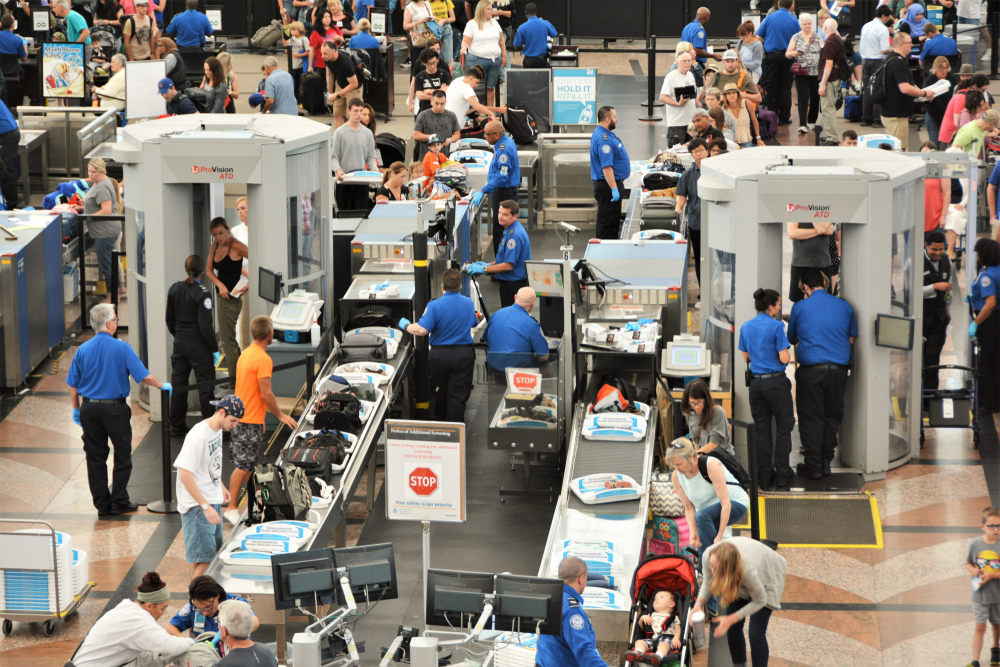
Intelligence Director Tulsi Gabbard was secretly monitored by Federal Air Marshals under the Biden administration in 2024, raising alarming questions about government surveillance of political figures and potential violations of civil liberties.
Key Takeaways
- Senator Rand Paul revealed that current Director of National Intelligence Tulsi Gabbard was surveilled by federal air marshals on domestic flights in 2024
- Gabbard was placed on the TSA’s “Quiet Skies” watchlist shortly after criticizing the Biden administration in July 2024
- Air marshals documented details about Gabbard’s appearance and electronic device usage during flights
- Secretary of Homeland Security Kristi Noem confirmed finding thousands of documents proving government involvement in censorship under the previous administration
- Both Paul and Gabbard have condemned the surveillance as politically motivated and an abuse of government power
Government Surveillance of a Cabinet Member
In a shocking revelation during a May 2025 Senate hearing, Senator Rand Paul disclosed that federal air marshals had been secretly monitoring Director of National Intelligence Tulsi Gabbard during her domestic flights in 2024. The surveillance began through the Transportation Security Administration’s “Quiet Skies” program shortly after Gabbard publicly criticized the Biden administration in July 2024. According to newly obtained records confirmed by Senator Paul, air marshals reported detailed information about Gabbard’s appearance and electronic device usage while she traveled throughout the country.
The revelation came during a Capitol Hill session where Department of Homeland Security Secretary Kristi Noem was testifying about the department’s budget for fiscal year 2026. Senator Paul used the opportunity to question Secretary Noem about previous administration practices and potential abuses of government surveillance powers. The TSA’s Quiet Skies program, ostensibly created to monitor U.S. citizens to prevent potential terrorist threats, appears to have been weaponized against a political figure who later became a key member of President Trump’s cabinet.
Political Motivations Behind Surveillance
Both Senator Paul and Director Gabbard have strongly condemned the surveillance as a blatant politicization of intelligence agencies. The timing of Gabbard’s placement on the watchlist—immediately following her public criticism of the Biden administration—suggests political retaliation rather than legitimate security concerns. During the hearing, Paul urged the Department of Homeland Security to address these abuses and report on any personnel actions taken against those responsible for the improper surveillance activities.
Secretary Noem acknowledged during her testimony that her department had uncovered thousands of documents proving government involvement in censorship and policing speech under the previous administration. This admission bolsters concerns that intelligence and security agencies were being used to monitor and potentially intimidate political opponents. Senator Paul specifically commended the Trump administration for taking decisive action to end government-sponsored censorship using DHS personnel after taking office.
Gabbard’s Experience and Broader Implications
Director Gabbard has expressed significant concerns about the surveillance she experienced, noting unusual security measures during her travels in 2024. As a veteran and former congresswoman before becoming Director of National Intelligence under President Trump, Gabbard’s targeting raises serious questions about the priorities of federal law enforcement under the previous administration. The inappropriate surveillance of a future cabinet member demonstrates how government agencies were misused to monitor political figures rather than focusing on genuine threats to national security.
This case has broader implications for civil liberties and government transparency. The TSA’s Quiet Skies program was purportedly designed to identify potential terrorists, but its application to a prominent political figure suggests mission creep and potential abuse. The fact that both the TSA and the Cybersecurity and Infrastructure Security Agency fall under DHS jurisdiction raises questions about coordination between different government entities in monitoring American citizens for political purposes rather than legitimate security concerns.
Ongoing Investigation
Senator Paul’s disclosure has prompted calls for a thorough investigation into the extent of improper surveillance activities conducted under the previous administration. When Fox News Digital reached out to the Department of Homeland Security for comment on the allegations, they received no immediate response. This silence raises further questions about accountability and transparency within the agency regarding past activities that may have violated Americans’ civil liberties.
The Trump administration’s commitment to rooting out these abuses represents a significant shift in priorities, with Secretary Noem’s confirmation of thousands of documents proving government censorship underscoring the systemic nature of the problem. As additional details emerge about the surveillance of Director Gabbard and potentially other political figures, the public debate over the proper balance between national security and civil liberties continues to intensify in Washington and beyond.











